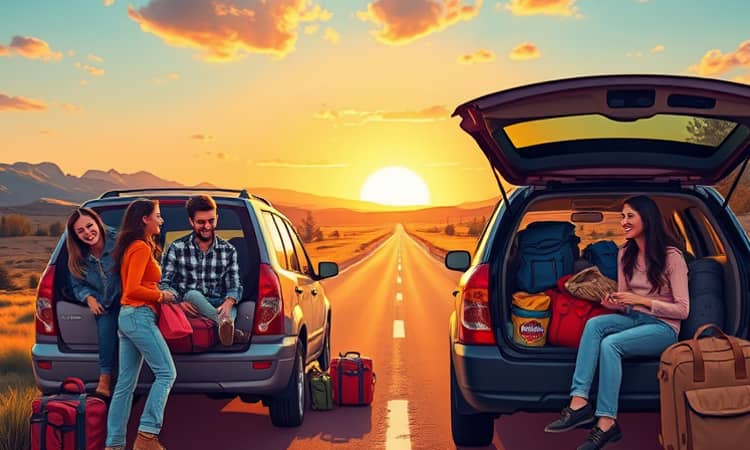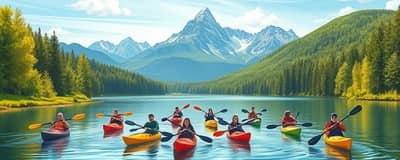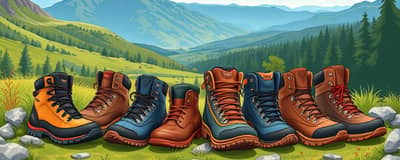Going on a road trip offers an amazing opportunity to explore new places, bond with friends or family, and create unforgettable memories. Whether it's a cross-country adventure or a weekend getaway, a well-planned journey can make all the difference between a trip to remember and a series of unfortunate events.
In this guide, we'll discuss essential tips on planning an unforgettable road trip, from choosing the perfect destination to budgeting, packing, and ensuring your vehicle is road-ready. Let's hit the road!
1. Choosing the Perfect Destination
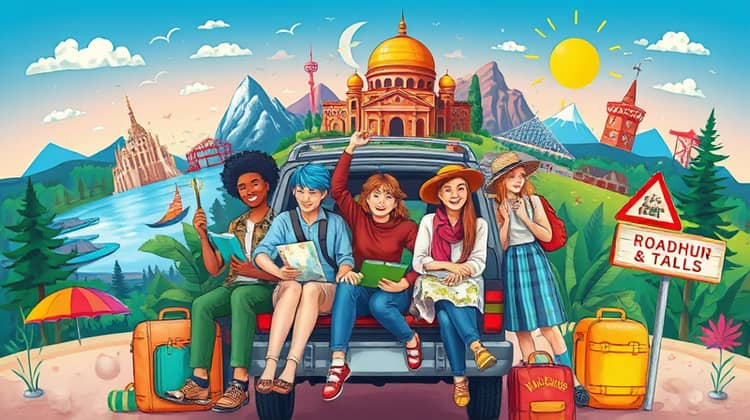
The first step to an unforgettable road trip is selecting a destination that excites you and your travel companions. Consider the interests and preferences of everyone involved, and choose a place that offers something for everyone, whether it's nature, culture, or adventure.
Look for destinations that you have always wanted to visit or those that are off the beaten path. Exploring new locations can create a sense of adventure and discovery that adds to the overall experience. Remember, the journey often matters just as much as the destination itself.
- National parks and natural reserves for outdoor activities
- Cities with rich cultural experiences and attractions
- Beaches or lakes for relaxation and water sports
- Historical landmarks and significant sites
- Unique roadside attractions and quirky towns
2. Mapping Your Route
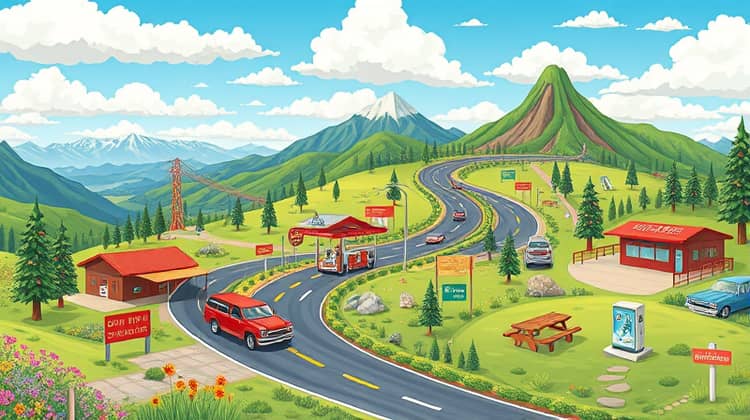
Once you have decided on your destination, the next step is to map out your route. This involves choosing the roads you will take, planning for scenic byways, and identifying interesting stops along the way. Using navigation apps like Google Maps or specialized road trip planners can help you visualize your journey more clearly.
Additionally, make sure to account for rest stops, meal breaks, and fuel stations. This will ensure that your trip remains enjoyable rather than stressful, allowing everyone to relax and take in the scenery as you go.
- Plot your course using popular travel apps
- Identify scenic routes and iconic landmarks
- Highlight rest areas and dining options along the way
- Consider alternative routes for variety
- Research attractions that pique your interest
3. Budgeting for Your Adventure
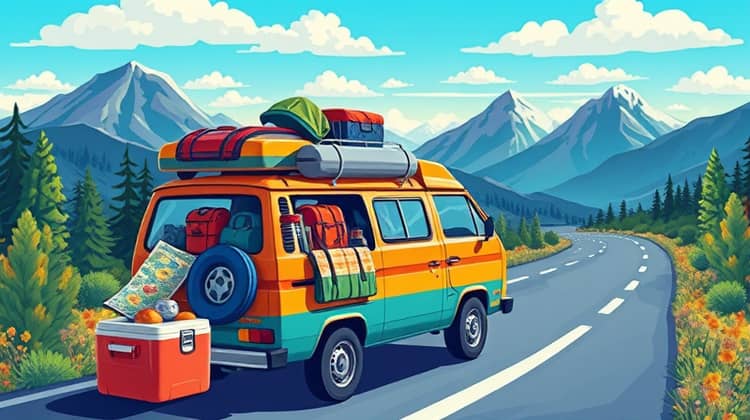
Budgeting is a critical aspect of planning any road trip. It helps you anticipate expenses and avoid financial surprises that could ruin your adventure. Start by outlining your main costs, including fuel, accommodation, food, activities, and emergencies.
To save money, research discounts for attractions and accommodations, pack more food items from home, and limit costly detours or side trips that may stretch your budget too thin.
- Estimate fuel costs based on your vehicle's mileage
- Set a daily budget for meals and attractions
- Plan for accommodations ahead of time
- Allocate extra funds for unexpected expenses
- Look for deals and discounts to save money
Always keep a close check on your budget to ensure you stick to your estimates. Having a dedicated travel fund can accommodate impulse buys or unique experiences that present themselves along the way. Lastly, remember that some of the best moments don't require spending—enjoy the journey, the conversations, and the unexpected adventures that a road trip offers.
4. Packing Essentials
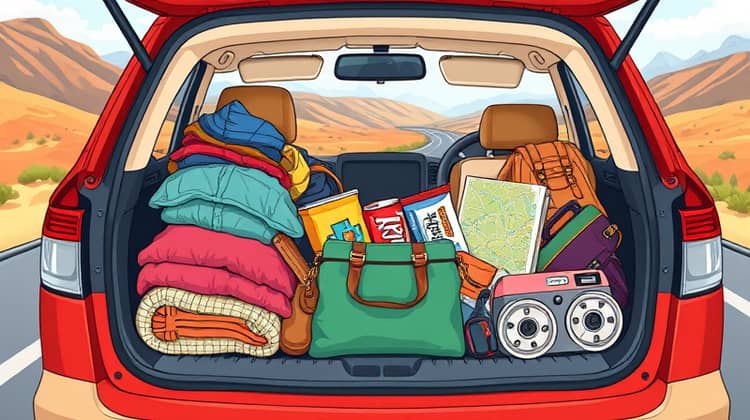
The success of a road trip often hinges on packing appropriately for the journey. This means not only fitting in your belongings but also being prepared for various situations you may encounter along the way. Make a comprehensive packing list well before you hit the road.
Consider the climate of your destinations, the duration of your trip, and any activities you plan to engage in. This will guide you in selecting the right items to take along without overpacking.
A. Clothing
Packing clothes for your road trip should always account for the weather and activities you plan to pursue. Layering your clothing can be a smart move, especially if you're traveling through areas with changing temperatures during the trip.
Don't forget to include comfortable shoes for walking, and a rain jacket or warm layers if you plan to hike or spend time outdoors.
- Comfortable and breathable clothing for long drives
- Hiking or sport-specific gear if relevant
- Rain jacket and colder weather layers
- Swimwear for beach destinations
- Sunglasses and hats for sun protection
B. Food and Snacks
Food is a vital aspect of any road trip, not just for nourishment but also for enjoying the experience together as a group. It's always a good idea to pack some snacks and meals to avoid excessive costs at roadside diners or gas stations.
When packing food, aim for items that are easy to eat, non-perishable, and satisfying. A mix of healthy options and treats can keep everyone happy on the road.
C. Safety and Emergency Kit
Being prepared for emergencies enhances your safety and peace of mind during the trip. A well-stocked emergency kit should be a priority in your packing checklist, ensuring you're prepared for any unexpected situations.
Essentials for your emergency kit don't just include first-aid supplies but also tools and items that can help you in case of car trouble or other unplanned scenarios.
- First-aid kit with bandages and medications
- Flashlight with extra batteries
- Basic car repair tools and a spare tire
- Blankets and warm clothing for extreme conditions
- Roadside flares or reflective warning triangles
D. Entertainment
Keeping everyone entertained during long drives is essential for a smooth experience. Prepare in advance by curating a playlist, downloading audiobooks, or gathering games that everyone can enjoy together.
Think about the interests of the group and make sure to mix different types of entertainment to satisfy everyone.
5. Vehicle Preparation and Maintenance
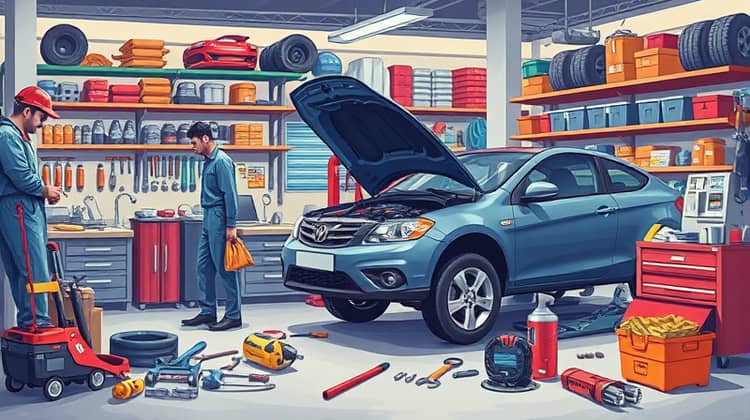
Before hitting the road, ensuring your vehicle is in optimal condition is crucial. Check all essential systems, such as the engine, brakes, tires, and lights, to prevent breakdowns during your journey.
Consider scheduling a professional inspection if you are uncertain about your vehicle's condition. Regular maintenance not only extends the life of your car but also contributes to your safety and the success of your road trip.
- Change the oil and check fluid levels
- Inspect and inflate tires to the recommended pressure
- Test brakes and replace worn brake pads if necessary
- Ensure all lights are functioning properly
- Replace windshield wipers if needed
6. Accommodation Options
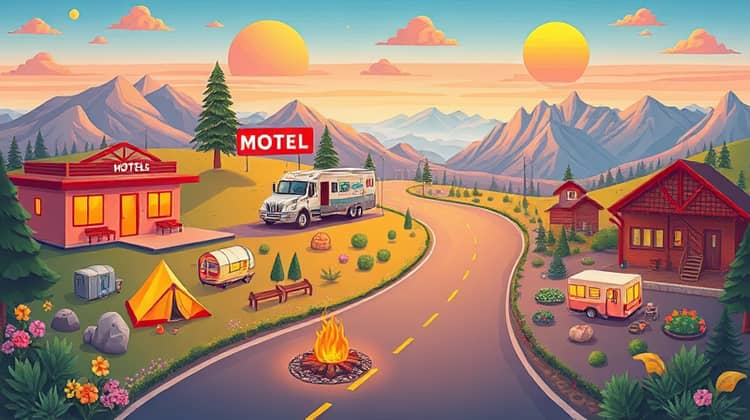
Depending on your budget and preferences, accommodation options for your road trip can vary widely. From hotels to camping grounds, taking your time to research these options ensures a comfortable and enjoyable stay during your journey.
If you prefer flexibility, consider booking accommodation just a night or two in advance, giving you the freedom to adjust your travel plans based on the road.
- Hotels for comfort and amenities
- Motels for budget-friendly stays
- Camping for outdoor enthusiasts
- Airbnb for unique local experiences
- Hostels for young or budget travelers
7. Embracing the Journey
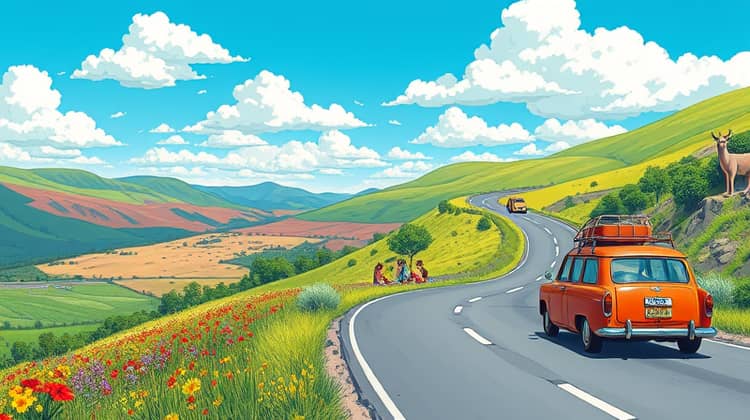
As you embark on your road trip, it's essential to embrace the experience fully. The landscapes you traverse, the people you meet, and the unexpected detours can often turn into the most memorable aspects of your adventure.
Keep an open mind, and allow yourself to explore new sights and enjoy the spontaneous moments that come up along the way. Sometimes, a wrong turn can lead to pleasant surprises or hidden gems.
8. Safety First
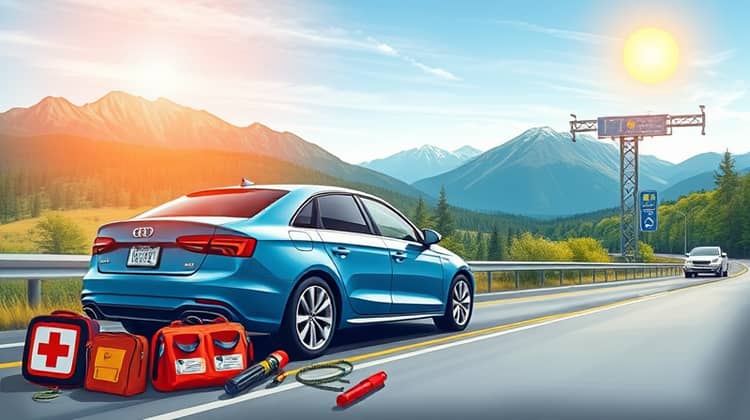
Safety should be your top priority throughout your journey. Always ensure your vehicle is equipped with the necessary safety equipment and that you are aware of your surroundings, especially during stops.
Regularly check weather conditions and plan accordingly. Being prepared for changes in climate or road conditions can significantly enhance your overall sense of security throughout the road trip.
Conclusion
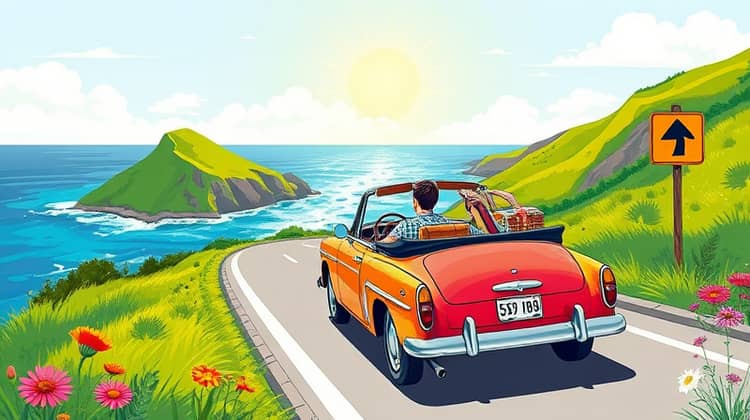
A well-planned road trip can create lifelong memories filled with adventure and exploration. By carefully considering your destination, mapping your journey, budgeting well, and preparing adequately, you can maximize your road trip experience.
Remember that the journey is about more than just the destination—it's about the experiences you share with others along the way. Happy travels!

